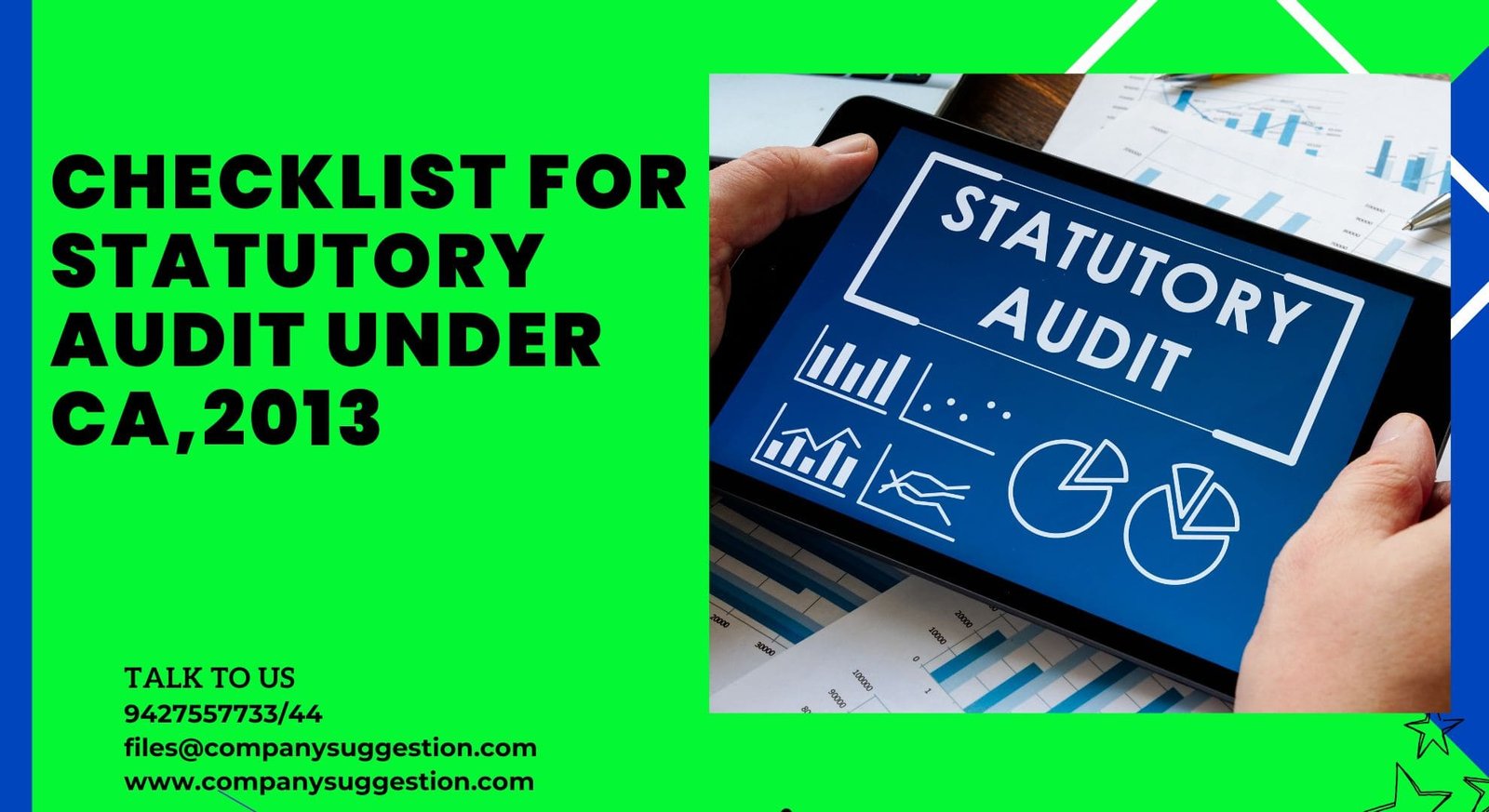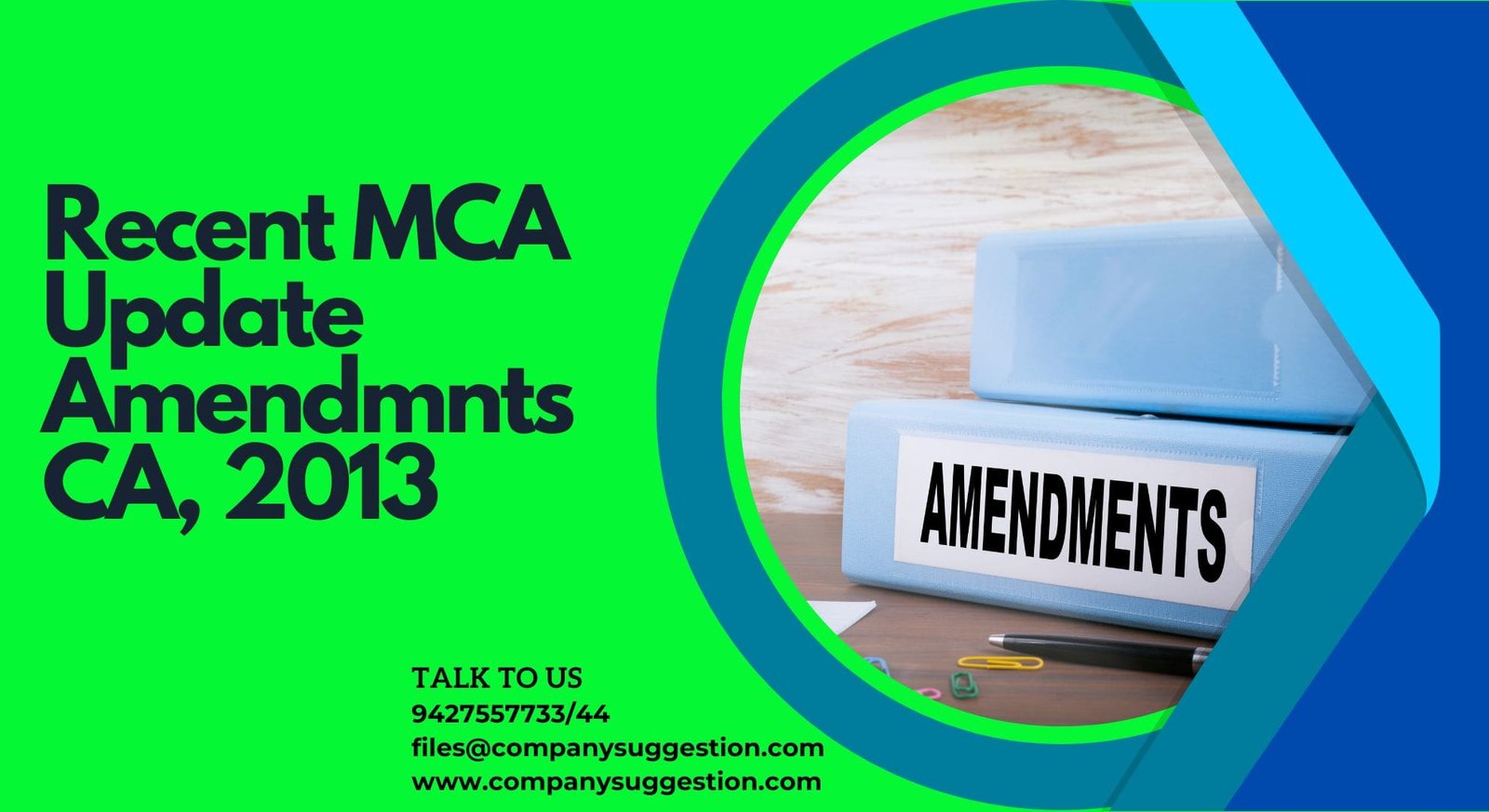The companies Act, 2013 Maintaining minutes of meetings is an important aspect of corporate governance for private companies. Minutes serve as an official record of the discussions, decisions, and actions taken during board meetings, shareholder meetings, and other significant company gatherings. Here are some key points to consider when it comes to maintaining minutes for private companies:
1. Legal Requirements:
Ensure compliance with relevant legal requirements and regulations governing the maintenance of minutes for private companies in your jurisdiction.
2. Format and Structure:
Follow a standardized format for minutes. Include the name of the company, date, time, and location of the meeting, names of attendees, and a clear agenda.
Record each agenda item separately, including discussions, resolutions, and any voting results.
3. Attendance:
List the names of all attendees, specifying whether they are directors, officers, shareholders, or guests.
Note the presence of a quorum if required by the company’s bylaws.
4. Review and Approval:
Minutes should be reviewed and approved at the subsequent meeting. Note any corrections or amendments made during this process.
Clearly state if the minutes are draft or final.
5. Detailed Discussions:
Summarize the key points of discussions on each agenda item. Capture the rationale behind decisions and any alternatives considered.
6. Resolutions and Decisions:
Document all resolutions and decisions made during the meeting. Include the names of individuals who proposed or seconded motions.
Specify whether resolutions were passed unanimously or by a specific majority.
7. Action Items:
Record any action items arising from the meeting, assigning responsibilities and deadlines. Follow up on these in subsequent meetings.
8. Voting Record:
If applicable, provide a record of votes, including the names and positions of those who voted for, against, or abstained.
9. Confidentiality:
Clearly mark any confidential information discussed during the meeting and ensure that access to such information is restricted appropriately.
10. Signature and Date:
The minutes should be signed and dated by the chairperson of the meeting or another designated individual.
11. Storage and Accessibility:
Store minutes in a secure and easily accessible location. Consider electronic storage for efficiency.
Ensure that authorized individuals can access past minutes as needed.
12. Regular Training:
Provide training to those responsible for taking minutes to ensure consistency and accuracy.
13. External Assistance:
Consider seeking legal or professional advice to ensure compliance and best practices.
14. Annual Review:
Conduct an annual review of the company’s minute-taking process to identify areas for improvement.
15. Communication:
Communicate the key decisions and actions to relevant stakeholders promptly.
Importance of minutes for private companies
The minutes play a crucial role in private companies for several reasons:
1. Legal Compliance: Maintaining accurate and detailed minutes is essential for legal compliance. It demonstrates that the company is adhering to corporate governance requirements and fulfilling its obligations.
2. Record of Decisions: Minutes serve as an official record of the discussions, decisions, and actions taken during meetings. They provide clarity and transparency, ensuring that everyone involved is on the same page and can refer back to the decisions made.
3. Liability Protection: In case of any disputes or legal issues, minutes can serve as evidence of what transpired during the meeting. They can help protect the company and its directors by providing a documented account of the decision-making process.
4. Historical Reference: Minutes serve as a historical reference for the company. They provide insights into past decisions, discussions, and the evolution of the company over time. This can be valuable for future planning, analysis, and learning from past experiences.
5. Shareholder Communication: Minutes can be shared with shareholders to keep them informed about the company’s activities, decisions, and progress. It helps build trust and ensures transparency between the company and its shareholders.
Best Practices for Maintaining Minutes
Maintaining accurate and effective minutes is crucial for private companies. Here are some best practices to ensure that minutes serve their purpose well:
- Prepare in Advance:
Review the agenda and any relevant documents before the meeting to understand the topics to be discussed. This will help you capture key points more effectively.
- Attendee List:
Record the names of all attendees at the meeting. This provides a clear record of who was present and participating in the decision-making process.
- Document Motions and Decisions:
Clearly document any motions, proposals, and decisions made during the meeting. Include the rationale behind decisions and any voting outcomes.
- Action Items:
Record action items and assign responsibilities with clear deadlines. This helps in tracking progress and ensures that decisions made during the meeting are implemented.
- Use Clear and Concise Language:
Write in clear, concise language. Avoid unnecessary jargon and ensure that the minutes are easily understandable by those who were not present at the meeting.
- Timestamps:
Consider including timestamps for major agenda items or decisions. This can be helpful for referencing specific points in the meeting and provides a chronological order of events.
- Review and Approval:
Distribute draft minutes to attendees for review and correction. After any necessary revisions, obtain formal approval of the minutes at the beginning of the next meeting. This ensures accuracy and accountability.
- Include Absences and Excusals:
Note if any participants were absent or excused from the meeting. This information provides context and transparency about who was involved in the decision-making process.
- Record Discussions, Not Just Decisions:
Capture key points from discussions that lead to decisions. Understanding the context and rationale behind decisions can be valuable for future reference.
- Maintain Consistent Format:
Follow a consistent format for recording minutes. This makes it easier for readers to locate specific information and creates a standardized record-keeping system.
- Confidentiality:
Be mindful of confidentiality issues and sensitive information. Clearly mark any confidential discussions or decisions and limit access to authorized personnel.
- Archive Minutes Securely:
Keep a secure and organized archive of minutes for future reference. This may include both physical and digital storage, depending on the company’s policies.
- Training for Minute-Takers:
If multiple individuals take minutes, ensure that there is consistency in the approach. Provide training to those responsible for recording minutes to maintain a standardized practice.
- Follow Up on Action Items:
In subsequent meetings, provide updates on action items to ensure accountability and track progress.
- Compliance with Regulations:
Be aware of any legal or regulatory requirements regarding the maintenance and retention of corporate records, including minutes.
Company Suggestion provides services of Compliances services along with same Income Tax Returns, GST Registration or Returns etc.
Our experts of team will guide you related to compliances of Companies, Firms and other entities if you have any doubt regarding this, then you can send your doubts on company suggestion and clear it.













